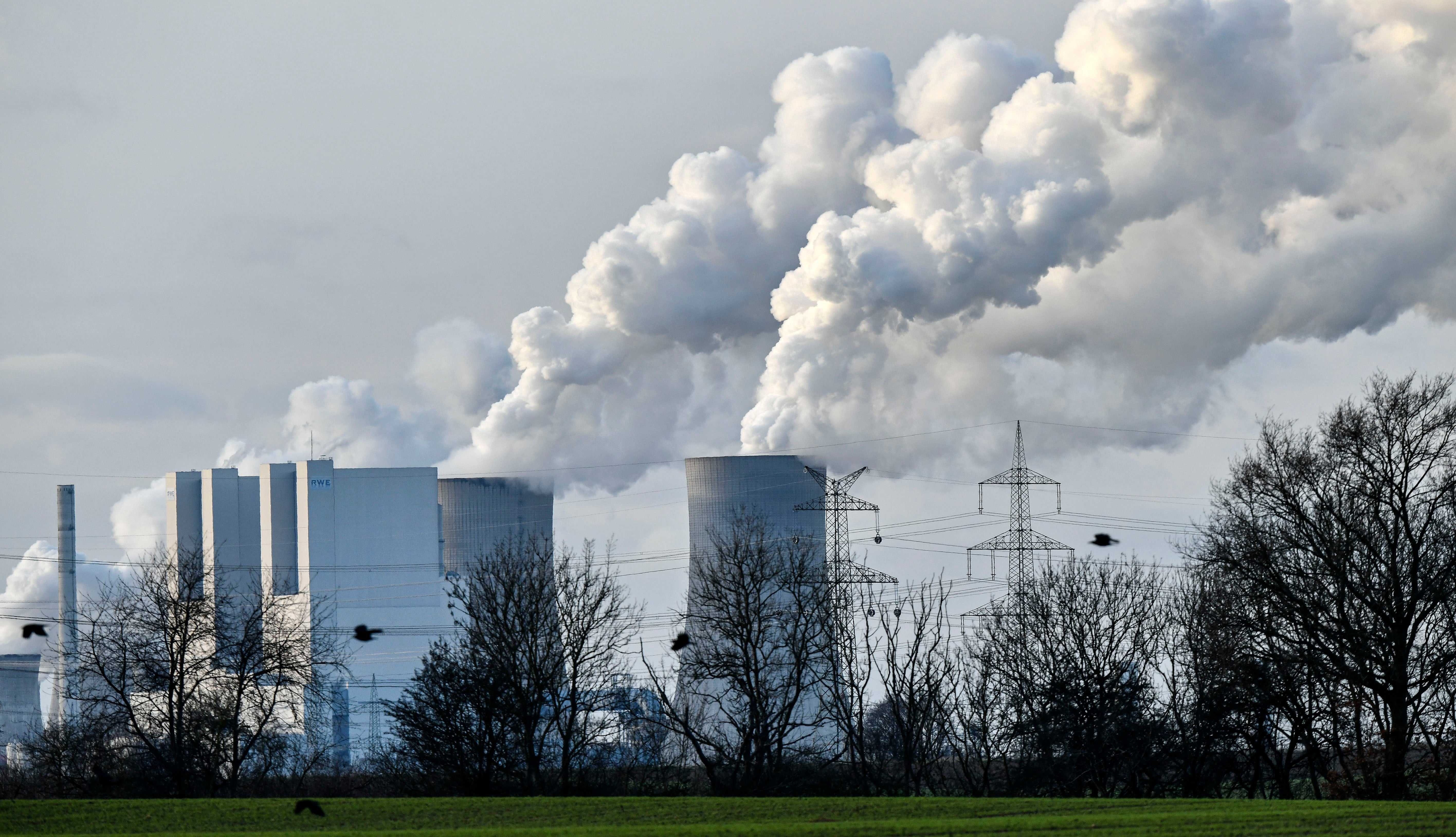Study: German emissions to grow by largest amount since 1990
Germany is forecast to record its biggest rise in greenhouse gas emissions since 1990 this year as the economy rebounds from the pandemic-related downturn

Your support helps us to tell the story
From reproductive rights to climate change to Big Tech, The Independent is on the ground when the story is developing. Whether it's investigating the financials of Elon Musk's pro-Trump PAC or producing our latest documentary, 'The A Word', which shines a light on the American women fighting for reproductive rights, we know how important it is to parse out the facts from the messaging.
At such a critical moment in US history, we need reporters on the ground. Your donation allows us to keep sending journalists to speak to both sides of the story.
The Independent is trusted by Americans across the entire political spectrum. And unlike many other quality news outlets, we choose not to lock Americans out of our reporting and analysis with paywalls. We believe quality journalism should be available to everyone, paid for by those who can afford it.
Your support makes all the difference.Germany is forecast to slip back below the threshold it had set for cutting greenhouse gases by 2020, amid a post-pandemic recovery and unfavorable conditions for renewable energy, according to a report by an environmental think tank Sunday.
Berlin-based Agora Energiewende examined data from the first half of 2021 to forecast that total emissions in Germany this year will be equivalent to somewhere between 760 million to 812 million tons of CO2
This would put Germany’s emissions about 35-39% below 1990 levels. The German government had pledged to achieve cuts of 40% by 2020 — a target it claimed to have reached last year, in large part due to the pandemic-related economic downturn.
This year's rebound of about 47 million tons of carbon dioxide in 2021 would be the biggest increase since 1990, Agora Energiewende said. Utility companies said they burned significantly more coal in the first six months of his year than in the same period of 2020, while poor weather conditions hampered the production of wind and solar power.
Germany's main political parties have put combating climate change at the top of their agenda in the run-up to a national election on Sept. 26.
The government recently set tougher targets for the coming decades, including for emissions to be 55-65% below 1990 levels by 2030, and 88% lower by 2040. Germany aims to reduce emissions to ‘net zero’ by 2045.
The new report also shows a significant increase in consumption of fossil fuels across the building, industrial and transport sectors. If confirmed, the government will be required by law to introduce urgent measures to reduce those sectoral emissions.
“Far-reaching decisions need to be taken that we mustn’t shy away from,” said Olaf Scholz, Germany’s finance minister and the center-left candidate running to succeed Chancellor Angela Merkel in next month's election.
Agora Energiewende receives its funding from environmental groups, such as the European Climate Foundation, and the German government.
Last week, scientists from around the world issued a major report saying the Earth is getting so hot that temperatures in about a decade will probably blow past a level of warming that world leaders have sought to prevent. U.N. officials called the report a “code red for humanity.”
___
Read more of AP's climate coverage at https://www.apnews.com/Climate